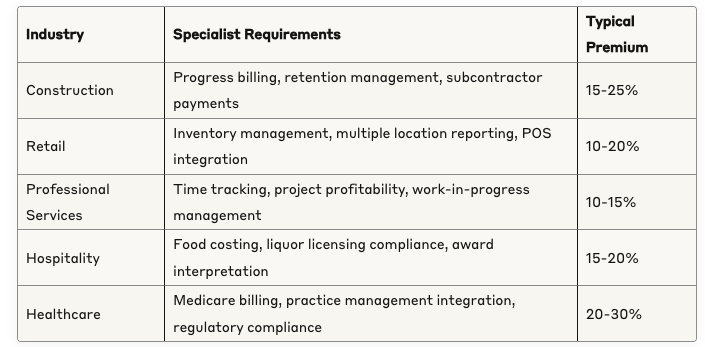
Published: July 2025
The Australian freelance economy has experienced unprecedented growth, with over 4.1 million people now working in some form of flexible arrangement. Within this expanding landscape, freelance bookkeepers have emerged as essential partners for small and medium businesses seeking professional financial management without the overhead of full-time employees.
Recent data from the Australian Bureau of Statistics shows that 68% of small businesses now outsource at least some of their bookkeeping functions, with freelance professionals capturing an increasing share of this market. This shift reflects changing business priorities: entrepreneurs want to focus on core activities while ensuring their financial records meet professional standards and compliance requirements.
However, selecting the right freelance bookkeeper involves more than simply comparing hourly rates. Australian businesses must consider qualifications, industry experience, technology capabilities, compliance knowledge, and working relationship compatibility. The wrong choice can result in costly errors, compliance failures, and operational disruptions that far exceed any perceived cost savings.
The freelance bookkeeping market offers diverse options, from part-time professionals building portfolio careers to experienced specialists commanding premium rates for complex engagements. Understanding this landscape, knowing what to look for, and structuring effective working relationships can transform your business's financial management while supporting sustainable growth.
The freelance bookkeeping sector has matured significantly over the past decade, driven by technological advances, changing workforce preferences, and evolving business needs. Today's market offers sophisticated professionals delivering services comparable to traditional accounting firms while providing flexibility and cost advantages particularly attractive to growing businesses.
Australia's freelance bookkeeping market now encompasses approximately 45,000 practitioners working independently or through platforms connecting businesses with financial professionals. This represents a 180% increase from 2015, when traditional employment dominated the bookkeeping profession.
Key market drivers include:
The market includes diverse practitioner types, each offering different value propositions:
Certified Practicing Bookkeepers (CPBs): These professionals hold formal qualifications and membership with professional bodies like the Australian Institute of Bookkeepers. They typically offer comprehensive services including compliance management, financial reporting, and strategic advisory support.
Technology Specialists: Freelancers focusing on specific software platforms like Xero, MYOB, or QuickBooks. They often combine bookkeeping services with system implementation, training, and ongoing technical support.
Industry Specialists: Practitioners with deep expertise in specific sectors such as retail, construction, professional services, or hospitality. They understand industry-specific requirements, regulations, and best practices.
Compliance Experts: Professionals specialising in regulatory requirements including BAS preparation, payroll compliance, and audit preparation. They often work with businesses in highly regulated industries or those facing complex compliance challenges.
Virtual Bookkeeping Services: Technology-enabled practices offering systematic, process-driven services at scale. These operations typically combine qualified staff with automated workflows and standardised service delivery such as Sydney Bookkeeper.
Modern freelance bookkeeping transcends geographic boundaries, with cloud technology enabling seamless service delivery regardless of physical location. However, local presence remains valuable for:
Many successful freelance bookkeepers operate hybrid models, serving local clients in person while maintaining remote relationships with businesses across Australia and internationally.
Professional qualifications provide assurance of competency while protecting your business from risks associated with inadequate service delivery. Understanding credential hierarchies and their implications helps inform selection decisions and set appropriate expectations.
Australian bookkeeping qualifications follow established pathways reflecting increasing complexity and responsibility levels:
Certificate III in Accounts Administration
Certificate IV in Bookkeeping
Diploma of Accounting
Bachelor Degrees in Accounting/Commerce
Modern bookkeeping requires proficiency with cloud-based software and digital workflows. Relevant certifications include:
Australian freelance bookkeepers must understand complex regulatory requirements affecting client businesses:
Freelance bookkeepers offer varying service levels from basic transaction processing to comprehensive financial management. Understanding available options helps align service selection with business needs and growth objectives.
Most freelance professionals provide foundational services essential for business operations:
Transaction Recording and Classification
Financial Reporting and Analysis
Compliance and Regulatory Services
Experienced freelancers often develop expertise in specific areas commanding premium rates:
Management Accounting Services
System Implementation and Training
Advisory and Consulting Functions
Certain industries benefit significantly from specialist knowledge:

Understanding freelance bookkeeper pricing structures enables informed decision-making while ensuring cost-effective service delivery aligned with business requirements and growth plans.
Most freelance bookkeepers charge hourly rates reflecting their experience, qualifications, and service complexity:
Entry Level (Certificate III, 0-2 years experience)
Mid-Level (Certificate IV, 2-5 years experience)
Senior Level (Diploma/Degree, 5+ years experience)
Specialist/Premium (Advanced qualifications, 10+ years experience)
Many freelancers offer predictable monthly packages covering defined service scopes:
Basic Package ($300-600 monthly)
Standard Package ($600-1,200 monthly)
Premium Package ($1,200-2,500 monthly)
For specific initiatives, many freelancers offer project-based pricing reflecting value delivered rather than time invested:
When evaluating freelance bookkeeper costs, consider comprehensive expense including:
Compare these comprehensive costs against in-house alternatives considering salary, benefits, training, software, and infrastructure expenses.
Choosing the right freelance bookkeeper requires systematic evaluation across multiple dimensions ensuring alignment with business needs, cultural fit, and long-term success potential.
Evaluate candidates' technical capabilities through structured assessment:
Software Proficiency Testing
Industry Knowledge Evaluation
Problem-Solving Capabilities
Strong working relationships depend on effective communication and cultural alignment:
Communication Style and Frequency
Cultural Fit and Working Style
Professional Development and Growth
Comprehensive reference checking provides crucial insights into freelancer performance and reliability:
Client Reference Questions
Professional Reference Verification
Identify potential risks associated with each candidate and develop mitigation strategies:
Service Delivery Risks
Compliance and Quality Risks
Business Continuity Risks
Success with freelance bookkeepers depends on establishing clear expectations, effective communication protocols, and systematic management processes that support productive long-term relationships.
Invest time in comprehensive onboarding ensuring both parties understand expectations, processes, and success criteria:
Documentation and Access Setup
Process Mapping and Workflow Design
Performance Expectations and KPIs
Structure communication ensuring adequate oversight without micromanagement:
Regular Reporting Requirements
Meeting Schedules and Agendas
Implement systematic quality control ensuring consistent service delivery:
Review and Validation Processes
Performance Monitoring and Feedback
Continuous Improvement Initiatives
Modern freelance bookkeeping relationships depend heavily on technology integration, requiring careful planning and management to maximise efficiency while maintaining security and control.
Selecting and implementing appropriate accounting software forms the foundation for effective freelance relationships:
Platform Selection Criteria
Implementation and Configuration
Protecting sensitive financial information while enabling efficient collaboration requires robust security measures:
Access Control Protocols
Data Backup and Recovery Procedures
Leverage technology to streamline processes while maintaining necessary controls:
Automated Data Capture
Approval Workflows and Controls
Establishing clear legal frameworks protects both parties while providing mechanisms for resolving disputes and managing changing requirements over time.
Comprehensive service agreements address key aspects of the freelance relationship:
Scope of Services and Deliverables
Pricing and Payment Terms
Confidentiality and Data Protection
Ensure adequate insurance protection covering potential risks:
Professional Indemnity Insurance
Address regulatory requirements affecting the freelance relationship:
Tax and Superannuation Obligations
Record Keeping and Audit Requirements
Understanding typical challenges in freelance bookkeeping relationships enables proactive management and rapid resolution when issues arise.
Freelance bookkeepers may face capacity constraints affecting service delivery:
Peak Period Management
Growth and Scaling Challenges
Maintaining consistent quality requires systematic management:
Error Prevention and Detection
Performance Improvement Strategies
Strong relationships require ongoing investment and attention:
Expectation Alignment
Cultural and Working Style Differences
How much should I expect to pay for freelance bookkeeping services?
Freelance bookkeeping costs vary significantly based on qualifications, experience, and service complexity. Entry-level services range from $25-35 per hour, while experienced professionals charge $55-85 per hour. Monthly packages typically cost $300-2,500 depending on business size and requirements. Factor in total costs including software, training, and management time when comparing options.
What qualifications should I look for in a freelance bookkeeper?
Minimum qualifications include Certificate IV in Bookkeeping or equivalent, with professional membership in organisations like the Australian Institute of Bookkeepers preferred. Look for relevant software certifications (Xero Advisor, MYOB Certified Consultant), industry experience, and current professional development activities. Advanced qualifications like diplomas or degrees indicate higher capability levels.
How do I verify a freelance bookkeeper's credentials and experience?
Request copies of qualifications and certifications, verify professional memberships directly with issuing organisations, check references from recent clients, and confirm professional indemnity insurance coverage. Consider requesting work samples or conducting practical assessments to evaluate technical competency.
What should be included in a freelance bookkeeper service agreement?
Include detailed service scope, performance standards, pricing and payment terms, confidentiality provisions, data security requirements, termination procedures, insurance requirements, and dispute resolution mechanisms. Address intellectual property ownership, change management procedures, and compliance obligations relevant to your business.
How often should I communicate with my freelance bookkeeper?
Establish regular communication schedules appropriate to business needs, typically including monthly review meetings, quarterly strategic discussions, and annual relationship assessments. Daily or weekly communication may be necessary during initial setup or complex projects. Balance oversight requirements with respect for professional independence.
What systems and technology do I need to work with a freelance bookkeeper?
Cloud-based accounting software (Xero, MYOB, QuickBooks) forms the foundation, along with secure document sharing systems, banking integrations, and communication tools. Consider expense management apps, receipt scanning technology, and project management systems depending on business requirements.
How do I transition from an in-house bookkeeper to a freelancer?
Plan the transition carefully including knowledge transfer documentation, system access setup, process mapping, and gradual responsibility handover. Allow 2-4 weeks for comprehensive transition with overlap period enabling knowledge transfer and relationship establishment. Maintain key documentation and backup access during transition.
What happens if I'm not satisfied with my freelance bookkeeper's performance?
Address concerns immediately through direct communication, provide specific feedback and improvement expectations, implement additional oversight if necessary, and consider mediation for complex issues. Service agreements should include performance standards and termination procedures enabling relationship conclusion if improvement is insufficient.
How do I manage the risk of losing important financial data?
Implement robust backup procedures, maintain local copies of critical information, ensure comprehensive handover documentation, establish alternative access methods, and include data ownership and transfer provisions in service agreements. Regular data exports and documentation reduce dependency risks.
Can freelance bookkeepers help with tax compliance and BAS preparation?
Many qualified freelance bookkeepers can prepare and lodge Business Activity Statements, maintain compliance records, and support tax preparation. However, complex tax matters may require involvement of qualified tax agents or accountants. Clarify scope limitations and referral arrangements for specialised tax services.
At Sydney Bookkeeper, we provide bookkeeping services tailored for Australian businesses to ensure accurate financial management and compliance with Australian Taxation Office (ATO) requirements. Our services include weekly and monthly reconciliations, bank account and card allocations, GST mapping, data entry, and BAS/IAS preparation to support regulatory compliance. We also offer comprehensive financial reporting, such as profit and loss reviews, balance sheet analysis, monthly cash flow reviews, margin and unit economics analysis, job costing, and interim financial reporting.
Additional offerings encompass payroll management with employee onboarding, salary calculations via Xero, payslip distribution, and PAYG support; accounts receivable management through invoice processing, overdue reminders, remittance allocation, and customer collections reporting; and accounts payable management with invoice processing, digital filing, statement reviews, payments reporting, and bank batch upload preparation.
We provide Xero setup, migration, feature assistance, bank and application integrations, and accounting system reviews to streamline operations for businesses of all sizes. Our services can be fully or partially managed, with flexible collaboration options, no lock-in contracts, and a pay-for-what-you-use pricing model. Onboarding begins with a free assessment and customised proposal. For more details, visit our website at www.sydneybookkeeper.com.
sydney bookkeeper offers expert bookkeeping services sydney-wide for business owners, finance managers, and accounting firms to fuel local business growth.our sydney team delivers affordable packages, including professional bookkeeping, invoicing, payroll, and xero services.
from reconciliations to bas and xero setup, we ensure ato compliance, cut costs, and automate tasks, helping you scale confidently without long term contracts.perfect for businesses throughout sydney seeking reliable, local support.
ready to simplify bookkeeping and focus on growth?
our sydney bookkeeper experts will assess your needs and show how much time and money you can
save with our tailored services. no lock-in contracts.
pay only for what you use and pause anytime.


